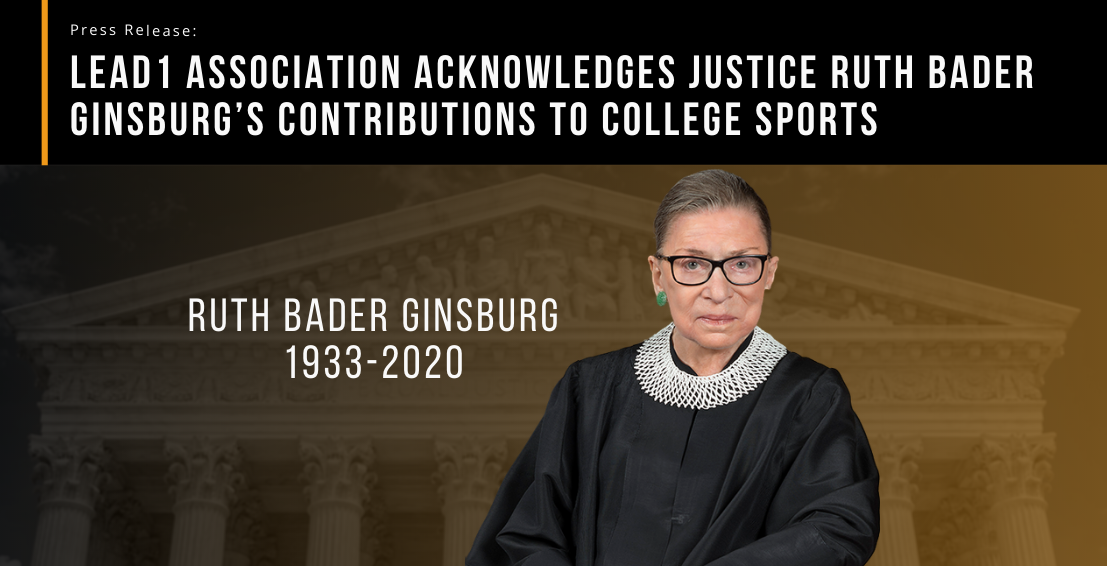WASHINGTON, D.C. — The LEAD1 Association (“LEAD1”) mourns the passing of Supreme Court Justice, Ruth Bader Ginsburg, who died on Friday at the age of 87. Ginsburg, who was appointed by then-President Bill Clinton in 1993, was the second woman to serve on the Supreme Court. In her opinions, Justice Ginsburg raised her voice on many important issues including gender equity, election law, LGBTQ rights, racial discrimination, and immigration. Justice Ginsburg also had a tremendous impact on college sports through her opinions in several landmark cases.
In NCAA v. Smith, for example, Justice Ginsburg provided clarity with respect to the enforcement of Title IX in college sports. Justice Ginsburg delivered the opinion of the court ruling that merely because an entity, like the NCAA, receives money, such as dues payments, from federally funded recipients, like its member institutions, does not make the entity a recipient itself and therefore would not be subject to suit under Title IX (stating that the NCAA indirectly benefiting from federal assistance afforded to its member institutions is “insufficient to trigger Title IX coverage”).
With respect to enforcement at the high school level, Justice Ginsburg joined the majority opinion of the court in Brentwood Academy v. Tennessee Secondary School Athletic Ass’n, ruling that a statewide association, like an interscholastic sport-association, could be sued as a state actor and therefore be subject to the due process and equal protection clauses of the 14th Amendment to the Constitution (stating that significant state involvement even in private conduct may count as state action).
Some of Justice Ginsburg’s most notable opinions were actually dissents (disagreements from the majority decision), such as in the most recent Murphy v. NCAA, which struck down the Professional and Amateur Sports Protection Act (PASPA), which prohibited state-sanctioned sports wagering. The issue in the case was whether Congress violated the “anti-commandeering principle” of the Constitution, which prohibits Congress from passing laws that compel states to enact federal programs (in this case, PASPA prohibited state authorized sports gambling).
Ginsburg dissented, “in PASPA, shorn of the prohibition on modifying or repealing state law, Congress permissibly exercised its authority to regulate commerce by instructing States and private parties to refrain from operating sports-gambling schemes. On no rational ground can it be concluded that Congress would have preferred no statute at all if it could not prohibit States from authorizing or licensing such schemes. Deleting the alleged “commandeering” directions would free the statute to accomplish just what Congress legitimately sought to achieve: stopping sports- gambling regimes while making it clear that the stoppage is attributable to federal, not state, action. I therefore dissent from the Court’s determination to destroy PASPA rather than salvage the statute.”






